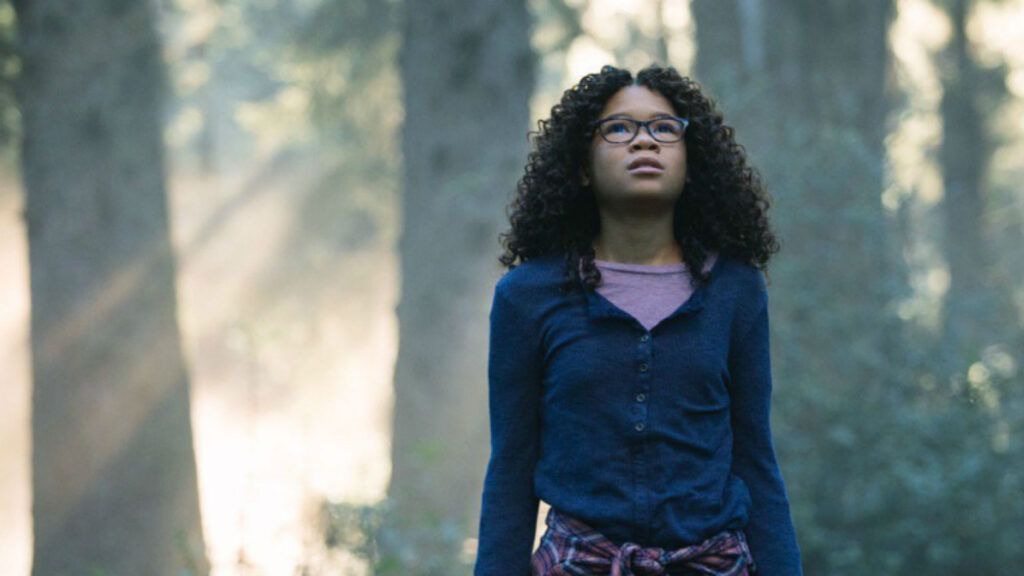When Disney’s A Wrinkle in Time hit theaters in March, it marked the end of a 50-year journey to get the film made – and producer Catherine Hand has been there every step of the way.
Hand, a producer on the film which stars Oprah Winfrey, Reese Witherspoon, and Mindy Kaling and was directed by Oscar nominee Ava DuVernay, first read Madeleine L’Engle’s fantasy adventure as a child.
President John F. Kennedy had just been assassinated and the uncertainty and grief of her parents, school teachers, and the adults around her felt frightening to a young girl with a limited understanding of the world.
She was a tomboy, preferring sports to books, but a librarian suggested she read L’Engle’s story of a young girl named Meg, a troublesome student with low self-esteem, who goes on a quest to find her father and ends up saving the world.
“I don’t think I had ever seen a story where a young girl could do something her father couldn’t do,” Hand tells Guideposts.org. “That was just a new thought. You always look to your father, your brother, whomever, and they were going to solve the problem. That this awkward, insecure little girl who I very much identified with, really had something within her that was going to be this secret weapon to save the universe was just such an inspirational and exciting thought.”
The underlying spiritual themes of the book also spoke to Hand.
“The book gave me so much courage and hope, that just because things look really dark right now, we can each become the light to push back the darkness,” Hand says. “That was a really, really important thought to have, when I was a little girl and feeling that loss, with all the grownups around me being so sad.
It’s why, as a young girl, Hand wrote a letter to Walt Disney asking him to make a movie about Meg and her journey through time. She knew the story would resonate with other young girls and, of course, she secretly wanted to play the title role.
When Disney died a year after Hand wrote to him, she decided the only way to get the movie made was to do it herself.
“In those days, nobody made movies for children except Walt Disney,” Hand says. “When he died, I knew of no other person to tell about this book. I thought, ‘Oh my gosh, I’m just going to have to grow up and make it myself.’ That’s what my 10-year-old self-thought, so that’s what I did, thank God.”
In the time between that first letter and now, Hand held onto that dream. She worked as an assistant to famed TV producer Norman Lear and was so persistent in pitching the film that he finally gave her the go-ahead to meet her childhood hero, L’Engle, to get the rights to the book. No film would come from that meeting for some time but Hand did strike up a life-long friendship with the author until her death in 2007.
Most people would’ve given up after spending decades trying to get the film made but Hand looks at that time as a blessing. Now, the film can help children who might also be worried and afraid of things happening in the news and around the world.
“There are so many different areas in life right now where you can see darkness,” she says. “I think it’s good to have these stories to remind young people, yes it exists, but you can overcome it.”
Her close bond with L’Engle is also why Hand was so pleased to have Frozen screenwriter Jennifer Lee and DuVernay come aboard the project. DuVernay is the one who advocated for a diverse cast and crew, insisting Meg be a biracial young woman and changing the ethnicities and even genders of other characters from the book. Hand says it’s that inclusive interpretation that L’Engle would be most pleased with.
“People have asked me, ‘What do you think Madeleine would think?’” Hand says. “I spoke with Madeleine for 20 years about A Wrinkle in Time. There wasn’t any kind of approach or angle that we didn’t discuss. She told me that the most important line to her in the book was, ‘Like and equal are not the same thing at all.’ It’s not what we look like that makes us equal. When Ava wanted to have a diverse cast, in my mind, I just thought, ‘My gosh, that’s the embodiment of one of the most important [ideas] to Madeleine, inclusivity.’ I think that she would have loved the idea.”
For Hand, that’s the most important message of the book and the film – and it’s the cornerstone of L’Engle’s legacy as well.
“I think the most important thing to Madeleine, in all of the conversations we ever had, was that she was afraid of the dark,” Hand says. “She hated the dark. She was a child, she remembered World War I, she was afraid of war. The way for her to counter the darkness was to light a candle. I think that she tried to do that in her life, in all of her books, and in all of her speeches. I guess my great hope is that people will see this movie and walk out feeling great, feeling good and inspired. That they have within themselves, to fight back whatever the darkness is that they are facing. We all face many different forms of darkness, and you have within yourself the ability to fight it back, and also to appreciate the love that’s in your life.”






